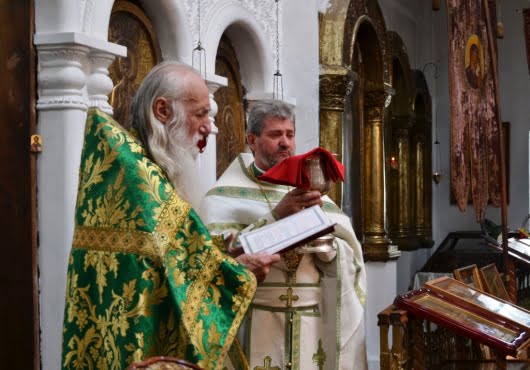Head of “the Abkhaz Orthodox Church,” one of the two groups exercising factual ecclesial control in Abkhazia, priest Vissarion (Aplia) announced yesterday that the temporarily suspended prayers were resumed on February 27.
Stressing that discussions about autocephaly are “too early,” the Abkhaz priest said Sokhumi first needs to ‘restore’ the autonomy of its church, with the support of the Russian Orthodox Church.
While restoring the “Abkhaz Catholicosate is a lengthy process,” priest Vissarion (Aplia) said the most important achievement is that Abkhazia is not associated with the Georgian Orthodox Church.
“The Georgians will not agree but we ourselves must be united inside Abkhazia. […] Then our issue will be resolved easily, as Moscow cannot understand whether we want Constantinople or restoring Orthodoxy with them,” he said, referring to the existing rift between the “Abkhaz Orthodox Church” and “Holy Metropolis of Abkhazia,” the Constantinople-leaning church of the region.
According to priest Vissarion (Aplia), the Moscow Patriarchate will meanwhile assist in organizing services in the Abkhaz language, publishing special literature in Russia, establishing a translation commission, and providing Abkhazia with the necessary church utensils.
The “Abkhaz Orthodox Church” head suspended services across the occupied region on February 19, calling for status determination from Moscow.
In response, the Georgian Orthodox Church decried the priest’s independence calls, reaffirming that “Abkhazia is a historical part [of Georgia] in both political and ecclesiastical terms,” while the liturgy in the region was always performed in the Georgian language.
Abkhazia is in fact a canonical territory of the Georgian Orthodox Church under the name of Tskhum-Apkhazeti or Sokhumi-Abkhazia Eparchy, but Tbilisi has had no ecclesial control over the area since the armed conflict in 1992-1993.
This post is also available in: ქართული (Georgian) Русский (Russian)

